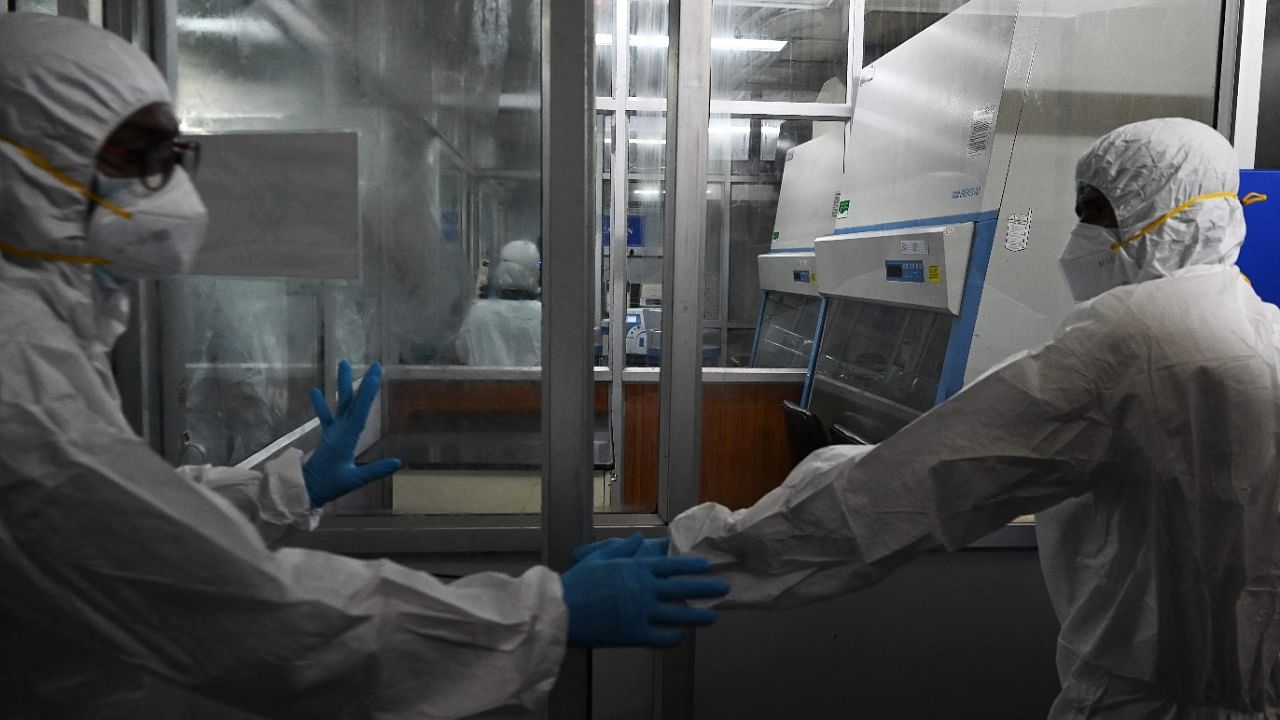
The Centre Monday set up a task force to oversee the response to the monkeypox outbreak amid growing counts of suspected cases and the death of one monkeypox-infected person in Kerala.
“The task force to monitor monkeypox cases in India will be headed by V K Paul, Member (Health), Niti Aayog and secretaries of the Union Health Ministry, Department of Pharmaceuticals and Department of Biotechnology,” sources said.
Also Read | The 'curious case' of monkeypox genomes in India
The decision to constitute the task force was taken at a high-level meeting held on July 26 at the level of the principal secretary to the prime minister to review the ongoing public health preparedness in the country.
So far, there are six confirmed cases of monkeypox in India, though multiple suspect cases have been reported from the states.
The task force will also provide guidance to the government on the expansion of diagnostic facilities in the country and explore emerging trends related to vaccination for the disease, the sources told PTI.
Also Read: Monkeypox infected youth dies in Kerala
The National Aids Control Organisation and the Directorate General of Health Services have prepared a targeted communication strategy to promote timely reporting, detection of cases and management of cases, official sources said.
Also, the Indian Council of Medical Research (ICMR) has been asked to operationalise its network of laboratories and make arrangements for requisite diagnostics of monkeypox disease.
The World Health Organisation (WHO) recently declared monkeypox a global public health emergency of international concern. Worldwide nearly 23,000 cases of monkeypox have been reported from 75 countries.
The government also issued comprehensive guidelines on the disease covering both public health as well as clinical management aspects and regular interaction with states were held virtually as well as Central multidisciplinary teams were deployed to affected states.
Also Read | Monkeypox vs Chickenpox: Difference in way symptoms on both diseases manifest in patients, say doctors
According to the WHO, monkeypox is a viral zoonosis -- a virus transmitted to humans from animals -- with symptoms similar to smallpox although clinically less severe.
Monkeypox typically manifests itself with fever, rash and swollen lymph nodes and may lead to a range of medical complications. It is usually a self-limited disease with symptoms lasting for two to four weeks.
The 'Guidelines on Management of Monkeypox Disease' issued by the Centre, stated that human-to-human transmission occurs primarily through large respiratory droplets generally requiring prolonged close contact.
It can also be transmitted through direct contact with body fluids or lesions, and indirect contact with lesion material such as through contaminated clothing or linen of an infected person. Animal-to-human transmission may occur by bite or scratch of infected animals or through bush meat preparation.
Also Read: Monkeypox can spread from close physical contact regardless of sexual orientation, race, say experts
The incubation period is usually from six to 13 days and the case fatality rate of monkeypox has historically ranged up to 11 per cent in the general population and higher among children. In recent times, the case fatality rate has been around three to six per cent.
The symptoms include lesions which usually begin within one to three days from the onset of fever, lasting for around two to four weeks and are often described as painful until the healing phase when they become itchy. A notable predilection for palm and soles is characteristic of monkeypox, the guidelines stated.
